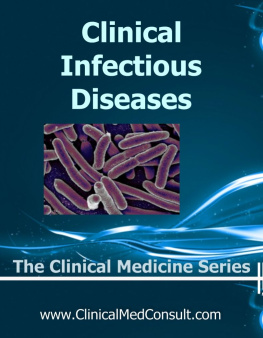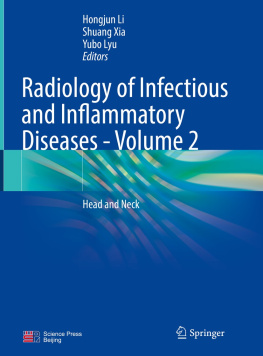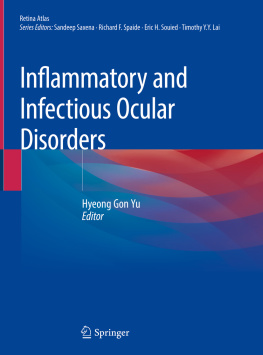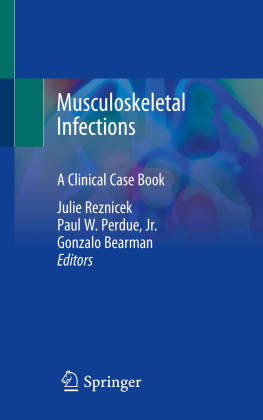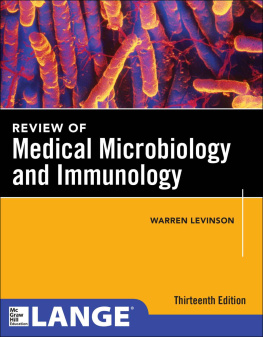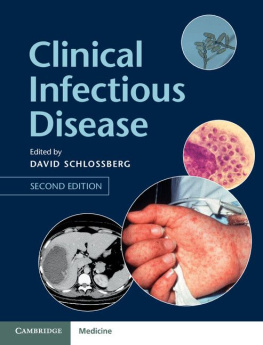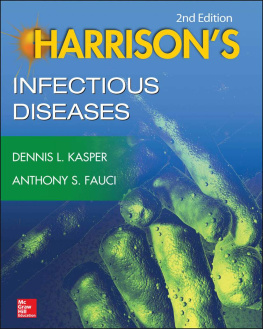PROBLEM-BASED MICROBIOLOGY
Swapan K. Nath, PhD, F(CCM)
Senior Lecturer and Course Director, Department of Microbiology, University of Texas Southwestern Medical Center, Dallas, Texas
Sanjay G. Revankar, MD
Associate Professor, Department of Internal Medicine, University of Texas Southwestern Medical Center, Dallas, Texas
SAUNDERS
Front Matter
PROBLEM BASED MICROBIOLOGY
Swapan K. Nath, PhD, F(CCM)
Senior Lecturer and Course Director
Department of Microbiology
University of Texas Southwestern Medical Center
Dallas, Texas
Sanjay G. Revankar, MD
Associate Professor
Department of Internal Medicine
University of Texas Southwestern Medical Center
Dallas, Texas
Copyright
SAUNDERS ELSEVIER
1600 John F. Kennedy Blvd.
Ste 1800
Philadelphia, PA 19103-2899
PROBLEM-BASED MICROBIOLOGY
ISBN 978-0-7216-0630-9
Copyright 2006, Elsevier Inc.
), by selecting Customer Support and then Obtaining Permissions.
Notice
Knowledge and best practice in this field are constantly changing. As new research and experience broaden our knowledge, changes in practice, treatment, and drug therapy may become necessary or appropriate. Readers are advised to check the most current information provided (i) on procedures featured or (ii) by the manufacturer of each product to be administered, to verify the recommended dose or formula, the method and duration of administration, and contraindications. It is the responsibility of the practitioner, relying on their own experience and knowledge of the patient, to make diagnoses, to determine dosages and the best treatment for each individual patient, and to take all appropriate safety precautions. To the fullest extent of the law, neither the Publisher nor the Editors assumes any liability for any injury and/or damage to persons or property arising out or related to any use of the material contained in this book.
The Publisher
Library of Congress Cataloging-in-Publication Data
Nath, Swapan Kumar
Problem-based microbiology/Swapan K. Nath, Sanjay G. Revankar.
p. cm.
ISBN 0-7216-0630-X
1. Medical microbiologyCase studies. I. Revankar, Sanjay G. II. Title.
QR46.N37 2006
616.9041dc22 2005042791
Acquisitions Editor: William R. Schmitt
Developmental Editor: Kevin Kochanski
Publishing Services Manager: Tina Rebane
Project Manager: Mary Anne Folcher
Design Direction: Gene Harris
Printed in China
Last digit is the print number: 9 8 7 6 5 4 3 2 1
Dedication
To my wife, Margaret, and children, Elizabeth and Joshua, whose enduring patience and loving support made this project an enjoyable experience
To my father, Sushil Nath, for all his encouragement And to the many medical students who inspired me along the way
SKN
To my wife, Varsha, for putting up with seemingly endless evenings and weekends working on this project
SGR
CONTRIBUTORS
Dominick Cavuoti, DO, Assistant Professor, Department of Pathology, University of Texas Southwestern Medical Center, Dallas, Texas, Diagnostic Methods
Michael Gale, Jr., PhD, Associate Professor, Department of Microbiology, University of Texas Southwestern Medical Center, Dallas, Texas, Pathogenic Viruses
Kevin S. McIver, PhD, Assistant Professor, Department of Microbiology, University of Texas Southwestern Medical Center, Dallas, Texas, Pathogenic Bacteria
Preface
Why write another book on medical microbiology? In the wake of an explosion of knowledge on this subject, medical students deserve help with filtering the knowledge that will be valuable to retain, usable in the study of medicine, and applicable to future clinical practice. Problem-Based Microbiology is an organ system-based study of medical microbiology using patient problems (cases). The unconventional format of the book places the core principles on microbes and diseases in the Appendix. It uses case studies to promote interactive learning and to build a foundation of concise knowledge for clinical practice. Each section is introduced by an overview of how infectious diseases affect a particular organ system. Then, it provides clinical case scenarios, differential diagnoses, a problem-solving approach, and succinct explanations of the infectious process. Problem-Based Microbiology includes 91 of the commonly encountered infectious diseases, bioterrorism agents, and emerging infectious diseases. The following features make this book unique:
Each case study is presented as an unknown to promote active learning. Each line of text provides additional information, designed to trigger recall, to facilitate the application of knowledge gained to that point in the case, and to provoke appropriate questions for sequential learning issues and further investigation.
Tables show differential diagnoses and rationales that lead the reader through the inclusion and exclusion of specific diseases, suggesting the association of likely causes with the presenting symptoms.
The detailed clinical case study for each infectious disease covered includes treatment options and outcomes.
The integration of basic and clinical sciences is designed to help develop a big picture of the disease.
Over 350 full-color illustrations and images of clinical disease reinforce the text.
The summary tables help sort through the important diseases caused by an infecting organism and aid in the retention of usable information.
Highlighted words throughout the cases identify key clinical symptoms and signs. Important concepts in the microbiology, epidemiology, and pathogenesis sections are also highlighted, which facilitates rapid review for course and Board exams.
Over 250 clinical vignette-based practice questions, carefully integrated with information given in the cases, can also be used to prepare for course and Board exams.
For specific ideas on the various ways Problem-Based Microbiology can be used, please see How to Use This Book which follows.
The end-of-book coverage of just what the students need to know core concepts of infectious processes due to viral, bacterial, fungal, and parasitic pathogens and the succinct coverage of diagnostic principles and key laboratory tests make this an all-inclusive book for use during a Microbiology course. The many study aids also make it a good review book for preparation for the USMLE step 1 and 2 exams.
Although medical students are anticipated to be the main benefactors of this book, we recognize that it can be useful to a variety of different readers, including advanced level undergraduate and graduate students, taking medical microbiology courses, students in allied health, nursing, and physician assistant programs, residents and clinical fellows, and instructors from community colleges, universities, allied-health professional schools, and medical schools.
It is our hope that all students will take away not only a better understanding and application of concepts of medical microbiology, but also enthusiasm for patient-based problem solving and for learning the practical issues on infectious diseases. It is also our hope that Problem-Based Microbiology will promote students quest for new knowledge.
.
Swapan K. Nath, PhD, F(CCM), Sanjay G. Revankar, MD
Acknowledgments
Any new project, such as
Next page

